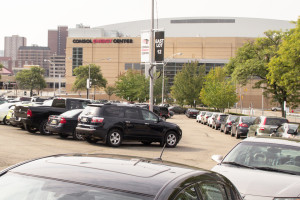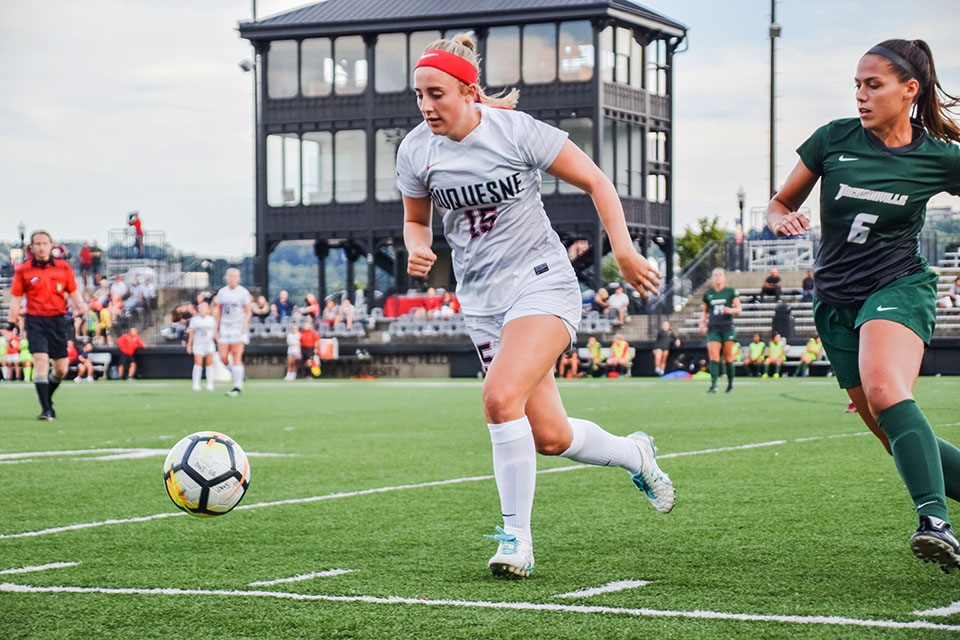

By Pat Higgins | Asst. Sports Editor
The $33.7 million redevelopment project to build three new streets and rebuild four others on the site where the Civic Arena used to stand hit a wall last Thursday when the Sports & Exhibition Authority failed to secure federal grant money.
The federal government rejected the authority’s application for $18.7 million in grant money to cover the rest of the cost of the project after the state committed $15 million, which will fund site preparation where the Civic Arena once stood.
The government selected 25 projects across the country to which they will grant $474 million under the Department of Transportation’s Transportation Investment Generating Economic Recovery (TIGER) grant program.
The Department of Transportation received 585 applications requesting over $9 billion, so the news that the SEA did not land the money they requested was not shocking, according to SEA executive director Mary Conturo.
“The TIGER program is a very competitive program,” Conturo said. “We knew that it was a competitive program when we were applying.”
According to Conturo, because the SEA had already been awarded a $15 million grant from the state, they “have the funding to get started on the infrastructure.”
“We’re able to keep progressing and moving forward,” Conturo said. “How we’re going to complete the funding has not been resolved at this point.”
The development has sparked a wave of controversy from city and state officials regarding public funding of privately operated facilities. It stems from the $450 million allocated to the financing of the Consol Energy Center, which was built in 2007.
With close to $19 million unaccounted for in the plan to reconnect the Hill District and Downtown, a debate regarding the conversation of public and private funding for sports facilities such as Consol has emerged.

According to the SEA, the arena’s project cost was $321 million when the master plan was approved in 2007.
The Pennsylvania Economic Development and Tourism Fund and the Pittsburgh casino license holder each pledged annual payments of $7.5 million for 30 years, totaling $450 million in public subsidy financing Consol’s construction. The Penguins agreed to pay $4.1 million annually for rent.
Carl Redwood, co-director of the Hill District Consensus Group, said he has a problem with the Penguins’ push for more public funding to finance the rest of the project.
“More than half a billion dollars is just the building itself,” Redwood said. “In addition to the [public subsidies granted to the organization], the Pens keep all the parking revenue, they [also] have the site control for the Lower Hill and once you add up all the different subsidies so far, it’s approximately $750 million.”
Redwood also said he has a huge problem that the Penguins are “coming and asking for more subsidies on top of that.”
“It’s not our role to build them a hockey stadium,” Redwood said. “It’s not their role to build roads and streets, but they have no role accepting public subsidy for a team that can pay individuals more than $1 million and claim they have no money.”
The Penguins declined to return several calls from The Duke.
Assistant economics professor Matt Ryan, who teaches a Sports Economics class that covers public funding of sports facilities, said he believes the root cause of this saga between a private corporation and the public sector occurred six years ago when the public agreed to finance Consol.
Programs within the jurisdiction of the Commonwealth of Pennsylvania and the city of Pittsburgh agreed to pay close to $500 million, while the Penguins organization chipped in $15.5 million for the right to pay a little over $4 million in annual rent, according to the SEA.
Now six years later, there is an $18.7 million hole in the budget for a project that will build and repair a total of seven new roads between Bedford and Centre Avenues. Officials are holding the decisions of public government in 2007 against the Penguins by demanding that a private corporation fund a project that they are overseeing for the redevelopment of the Lower Hill, something that Ryan considers a bit of a stretch.
“I think it’s the responsibility of the government not to be giving out subsidies for stadiums or subsidizing any sort of private entity,” Ryan said. “Once they decide to do that, I think it’s a bit wishful thinking to think that you can get [the Penguins] on the backside with this stuff.”




